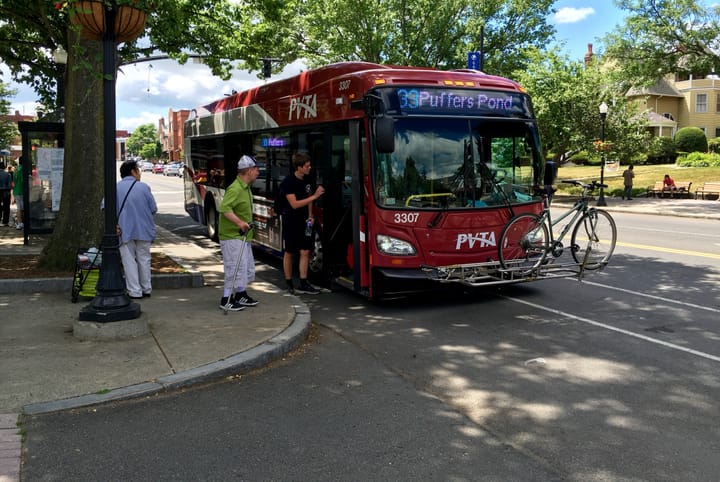Members of Men’s Lax Involved in Anti-Semitic Incident
A swastika was drawn on the face of an unconscious person at a men’s lacrosse party in December 2018, according to information obtained by The Student. Members of the men’s lacrosse team then took photos of the person and circulated them on social media. Since the matter was brought to the attention of the head of athletics and the Office of Student Affairs later that month, the college has not taken public action to address the incident. It is unclear what forms of discipline, if any, were subsequently employed.
According to a student who requested anonymity due to fear of retribution and/or threats, the men’s lacrosse team held a party at their off-campus house in December, during which an unknown person drew a penis and a swastika, among other images, on the face of an unconscious person. Team members then took pictures of the person, two of which were posted to Snapchat and were accessible to many in the college community. The Student obtained copies of these photos and three names of the players involved.
The swastika was a symbol used by the German Nazi Party, which committed systematic murder and violence against more than six million Jews during World War II. Since then, the swastika has been widely recognized as a hate symbol and sign of anti-Semitism.
Photographic evidence of the symbol was brought to Athletic Director Don Faulstick and Senior Associate Dean of Students Dean Gendron. According to The
Student’s sources, both administrative members commended the students for reporting the incident and assured them consequences would be taken. One student said Gendron asked what they thought the college should do, and the student said a public apology from the team was necessary. These meetings took place before winter break. No public statement has been made since.
Three months later, it is unclear what kinds of action were taken. The college athletics website shows that two of the three men named to The Student did not play the first two games of the season. A student with knowledge of the events told The Student that based on her understanding, the three team members involved were suspended for two games. One was already injured and out for the season; he is not included on the team roster. It is unknown whether the reduced playing time was a direct result of the incident or a response to something else.
Multiple sources nevertheless cited concern with what they saw as a lack of appropriate disciplinary action.
“I don’t think they thought about how people not on the team were affected,” said one student who also requested anonymity out of fear of retribution. Lack of playing time doesn’t necessarily mean that a person has understood the gravity of their actions, the student added.
All of The Student’s sources expressed fear of backlash or retribution from the athletics department and/or the men’s lacrosse team, and only provided information on the incident under conditions of anonymity.
Chief Student Affairs Officer Karu Kozuma provided a statement to The Student on Tuesday night after members of the administration were made aware of The Student’s investigation. “The incident was brought to the attention of the athletic director, who immediately reported it to the appropriate administrative offices,” he wrote. “The college undertook a prompt investigation and, based on the available information, completed the Community Standards Adjudication Process. We were unable to identify the individual(s) who drew the swastika.” He did not comment further on the disciplinary actions taken.
According to the college’s webpage on Community Standards, when a complaint is filed, the Community Standards Adjudication Process can result in a number of sanctions ranging from warning to expulsion. Section 14 of the Student Code of Conduct lays out possible sanctions and corrective actions that the college can take against students who have violated the Code of Conduct. One such action is “limitations on participation or loss of privileges,” including participation in “intercollegiate athletics.” Financial restitution, community restitution such as community work, course penalties and residential probation are other possible consequences.
Given that the photo was broadcast to the larger community on a social media platform and impacted people beyond party attendees, sources say the lack of public action regarding the incident is especially troubling. When student-run magazine The Indicator revealed in December 2016 that members of the men’s track and field team had exchanged sexually explicit and derogatory emails, the administration launched an investigation that resulted in putting the team on probation for four semesters and suspending individuals more deeply involved for specified periods of time. The most serious offenses resulted in suspension from athletic participation for the rest of the athlete’s time at Amherst. The administration also required every individual involved to undergo what Faulstick called an “educational process” before returning to the team.
Some students suspect that the matter involving men’s lacrosse was kept quiet so the team could maintain its competitive reputation from prior seasons. Last year, the team went 15-4. As of March 27, the team is 8-0.
Faulstick and Gendron both declined to comment, citing federal privacy laws.
“The athletic department’s practice is to not release information about individual suspensions or other discipline,” Faulstick wrote in an email.
Gendron later added that “we condemn and take very seriously any manifestation of hatred directed towards a group or groups in our community. At the same time, we respect the confidential nature of individual disciplinary action, as required by law.”
Head coach of men’s lacrosse Jon Thompson and assistant coach Ian Kadish ’18 also declined to comment. The Student reached out to a few members of men’s lacrosse but received no response.
Anti-Semitism has been on the rise globally. Hate crimes targeting Jews and Jewish institutions in the U.S. increased by 37 percent between 2016 and 2017, according to FBI data released in 2018. UMass Amherst also faced two hate incidents involving swastikas on campus in December last year. Shortly after, a rally of 200 faculty, students and staff demanded that the university better address issues of white supremacy and racism on campus.
The Student will update this story as it progresses.




Comments ()